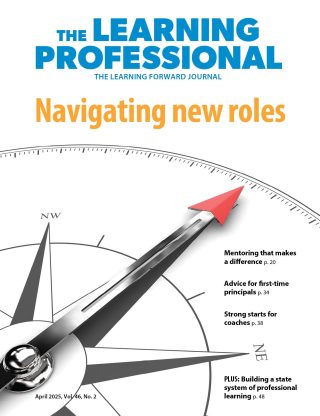FEATURE ARTICLE
Plagiarism Isn't Just An Issue For Students
By Learning Forward
February 2011
Vol. 32 No. 1
Read the remaining content with membership access. Join or log in below to continue.
Sed ut perspiciatis unde omnis iste natus error sit voluptatem accusantium doloremque laudantium, totam rem aperiam, eaque ipsa quae ab illo inventore veritatis et quasi architecto beatae vitae dicta sunt explicabo. Nemo enim ipsam voluptatem quia voluptas sit aspernatur aut odit aut fugit, sed quia consequuntur magni dolores eos qui ratione voluptatem sequi nesciunt. Neque porro quisquam est, qui dolorem ipsum quia dolor sit amet, consectetur, adipisci velit, sed quia non numquam eius modi tempora incidunt ut labore et dolore magnam aliquam quaerat voluptatem.
References
American Educational Research Association. (2000). Ethical standards of the American Educational Research Association. Available at www.aera.net/uploadedFiles/About_AERA/Ethical_Standards/EthicalStandards.pdf.
Barry, D., Barstow, D., Glater, J., Liptak, A. & Steinberg, (2003, May 11). Correcting the record. The New York Times. Available at www.nytimes.com/2003/05/11/national/11PAPE.html.
Goldyn, D. (2007, July 8). Is Carlos Mencia a thief? UCD Advocate. Available at www.ucdadvocate.com/2.1905/is-carlos-mencia-a-thief-1.122318.
International Reading Association. (n.d.). Code of ethics. Available at www.reading.org/General/AboutIRA/Governance/GovernancePolicies.aspx.
Learning Forward. (n.d.). A staff development code of ethics. Available at www.learningforward.org/standfor/ethics.cfm.
Scanlon, P.M. & Neumann, D.R. (2002, May/June). Internet plagiarism among college students. Journal of College Student Development, 43(3), 374-385.17 U.S.C. § 107 (2009).
Learning Forward is the only professional association devoted exclusively to those who work in educator professional development. We help our members plan, implement, and measure high-quality professional learning so they can achieve success with their systems, schools, and students.
Recent Issues
LEARNING DESIGNS
February 2025
How we learn influences what we learn. This issue shares essential...
BUILDING BRIDGES
December 2024
Students benefit when educators bridge the continuum of professional...
CURRICULUM-BASED PROFESSIONAL LEARNING
October 2024
High-quality curriculum requires skilled educators to put it into...
LEARNING TO PIVOT
August 2024
Sometimes new information and situations call for major change. This issue...













